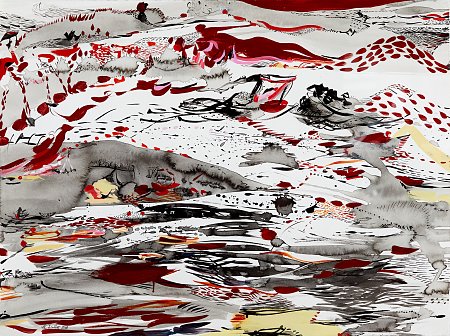
Unwanted Babies
Meanwhile, my sister was working as a textile designer in the garment district of New York, while her roommate from Carnegie Tech was working in the art department at Glamour Magazine. Others in her class had gone on to Yale, famous for its graduate art program. My sister’s boyfriend intended to be a famous painter, so he was in New York getting to know the gallery owners and the curators at the museums. Compared to my sister and her colleagues, Lily didn’t seem to be pursuing a career in art with enough energy.
Lily was one of my two married friends, both of whom had been transformed by marriage into servants. It could have been argued that Lou supported Lily, so why shouldn’t she at least do some homemaking, but that standard hadn’t applied to my other married friend. That friend worked as a paralegal and supported her husband while he was in school. After she came home tired from work, she set about making dinner while he sat at the table waiting for it. This, I knew, was supposed to be me. I was supposed to have been engaged at least by the time I graduated from college. After marriage, I would be expected not only to wash my husband’s underpants but to fold them and put them neatly into his bureau drawer.
There was something horrible about seeing Lily at the stove while Lou was sitting in the living room waiting to be served. She set the table and called him in. He sat down at their Scandinavian modern table with its Marimekko tablecloth and said, “Wait a minute. This plate is cold. Didn’t you warm the plates?” Instead of laughing and bopping him on the head with one of the plates, Lily shrank with shame, apologized, grabbed his plate and took it into the kitchen to warm it. Then we all sat down. Lou said, “Is this baked or broiled?” It didn’t matter what she replied, because whatever it was he’d want the other. It wasn’t a matter of cuisine. It was just bullying, and she let it happen. She took it.
She left him five years later, after he sat on top of her and banged her head into the floor. He came out of his rage just in time to call an ambulance and rush her to the emergency room. His money was doled out by somebody referred to as “the executor,” and that person visited Lily in the hospital. He didn’t need to pressure her. She was so ashamed of being beat up that she kept it a secret and refused to testify in court during the divorce proceedings. I could see by where she now lived in Dorchester that Lou had escaped without sharing his money.
Lily met Ronaldo in a painting class. He was the teacher and had some fame for his charcoal sketches. Married, the two of them moved to Vermont. They kept a pen of vicious geese and two horses. Lily and I saddled up and went for a ride, and, galloping along, her long hair streaming out behind her, she was as beautiful as any woman can get. That was the thing about Lily. You just couldn’t stop looking at her. Of course, she knew that, as all beautiful women know it, and was continually getting a standing ovation for something she couldn’t help. That explained, perhaps, the abashed look in her eye and her profound loneliness. Ronaldo did not want children. His career was too important for the bother. She was married to him for eight years, and during that time she had three abortions. Eventually, Ronaldo left her for someone else and had two children with that new wife.
Meanwhile, I met the right man, we had children, and went through the usual stages—gazing upon them asleep in their beds, suspecting their teachers weren’t good enough for them, clapping at recitals as tears welled up, nagging them about finishing their college application essays, then marveling when they came to visit that they’d turned into strangers.
Lily and I lost touch. One day I went into a bookstore in Cambridge. For some reason—maybe so the bookstore employees could have a panoramic view of the store in order to catch thieves—the cash register was on an elevated platform. I didn’t bother looking up, just lifted my book and the money onto the counter and waited for change. And waited. Finally, I looked up to see what was taking the salesperson so long and found her looking down at me. I had no idea why. She said, “Don’t you recognize me?” I didn’t. It was an attractive, gray-haired woman with a pixie haircut and an open, cheerful face. She smiled.
